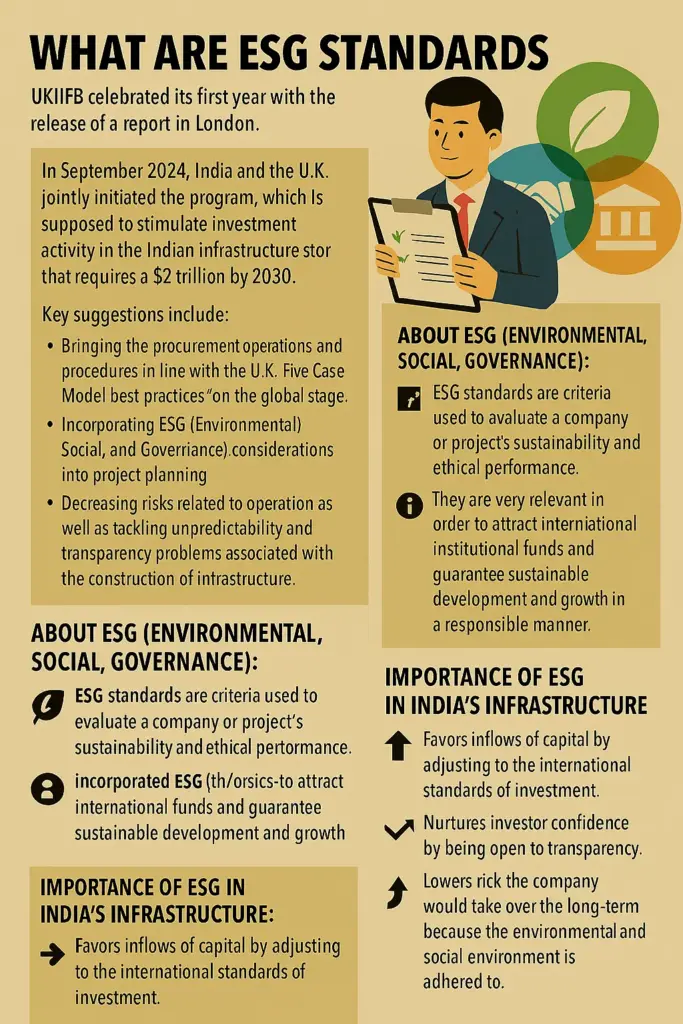September 9, 2025
ESG Standards: 5 Crucial Insights for Sustainable Projects
What are ESG standards
UKIIFB celebrated its first year with the release of a report in London.
- In September 2024, India and the U.K. jointly initiated the program, which is supposed to stimulate investment activity in the Indian infrastructure sector that requires a total of $2 trillion by 2030.
- In retrospect to the previous project-specific investments, the report then gave eight strategic imperatives on how the Indian infrastructure projects can be made appealing to the global investors and specifically in the renewable energy sector.
Key suggestions include:
- Bringing the procurement operations and procedures in line with the U.K. Five Case Model best practices on the global stage.
- Incorporating ESG (Environmental, Social, and Governance) considerations into project planning.
- Decreasing risks related to operation as well as tackling unpredictability and transparency problems associated with the construction of infrastructure.
About ESG (Environmental, Social, Governance) :
ESG standards are criteria used to evaluate a company or project’s sustainability and ethical performance. They are very relevant in order to attract international institutional funds and guarantee sustainable development and growth in a responsible manner.
Environmental (E):
- Highlights the environmental impact of a project.
- Covered under climate change mitigation, pollution control, use of renewable energy and good management of resources.
Social (S):
- Resolves the issue of influence of the project at the human and community level.
- Standards covering workers’ rights, inclusion and diversity, community initiatives, and safety.
Governance (G):
- Consumables contemplates management practices, accountability and transparency.
- Covers the anticorruption rules, equitable decision making and regulation adherence.
Importance of ESG in India’s Infrastructure:
- Favors inflows of capital by adjusting to the international standards of investment.
- Nurtures investor confidence by being open to transparency.
- Lowers the risk the company would take over the long term because the environmental and social environment is adhered to.
- Necessary to put essential areas such as renewable energy, smart cities, and transport into climate and development requirements.
Gist of the Hindu/Indian Express: 17 sep 2025
September 17, 2025
Gist of Daily News Papers Articles/The Hindu /Indian Express-16 Sep 2025
September 16, 2025
Daily The Hindu/ Article Gist : 15 Sep 2025
September 15, 2025
Daily the Hindu/Indian Express Articles/Gist: 9 Sep 2025
September 9, 2025

